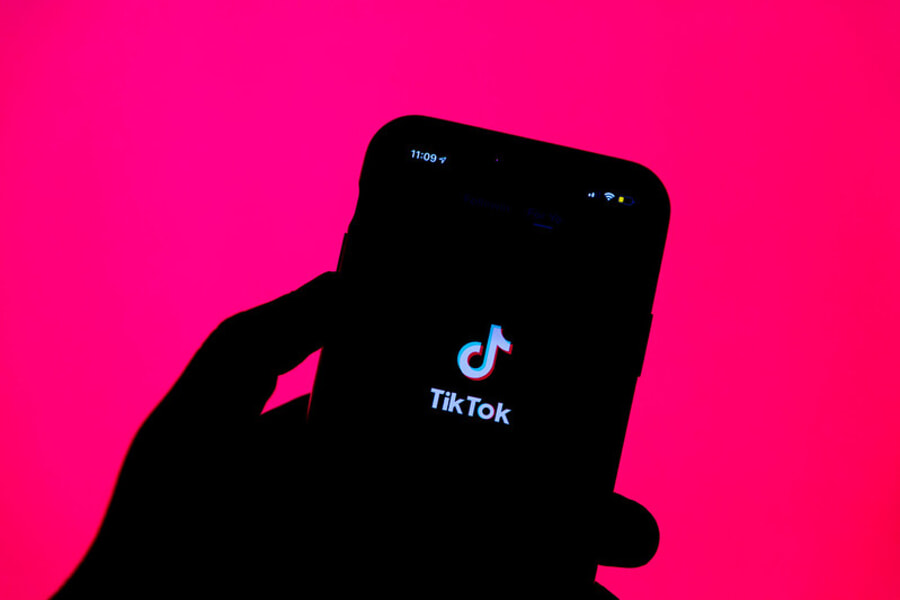Facebook, FARA and Foreign Media
A recent lawsuit against Facebook by Maffick LLC, which runs a media outlet linked to RT, is an opportunity to review different approaches to identifying and labeling foreign media.

“We’re suing Facebook, bitches!” tweeted In the NOW, an online social media company. Facebook, to In the NOW’s chagrin, had labeled the company state-controlled under a new policy, appending “Russian state-controlled media” to the byline of In the NOW’s posts. But In the NOW and its 4.8 million Facebook followers were not the only parties to notice the label: When Facebook announced the new policy on June 4, it listed about 200 media companies controlled by a foreign government and thus subject to the labeling rule. Since Facebook announced its policy, Twitter has also begun tagging state-controlled media posts on its site.
In 2016, In the NOW spun-off from RT, the Russian government-funded media conglomerate that has registered with the Justice Department as a “foreign agent.” Just this year, In the NOW reincorporated to, ostensibly, shed all remaining Russian ownership. Now, it has taken Facebook to court, seeking damages and an injunction to remove Facebook’s label. The company argues that its ownership structure means it should not be labeled “state-controlled” and, furthermore, that it has satisfied all of Facebook’s criteria to remove the moniker.
In the NOW alleges that foreign-state-controlled labels have been bad for business. According to a court filing by In the NOW’s parent company, Maffick LLC, In the NOW’s Facebook page views declined a whopping 73 percent from May to July after Facebook applied the label, and its social-media-post monetization likewise declined by 85 percent. The labels, claims Maffick, cause irreparable harm to its “reputation and good will as a social media source.”
On Aug. 27, Judge James Donato of the U.S. District Court for the Northern District of California denied Maffick’s request for a temporary restraining order but set an expedited trial date of Dec. 14. Given the high legal bar for an injunction and damages in the First Amendment context, Maffick faces an uphill battle in court. But the lawsuit raises a host of questions other than the purely legal ones: What criteria should analysts consult to determine that a domestic company is controlled by foreigners? Why, in Facebook’s view, is In the NOW’s reorganization insufficient? And when should the level of foreign involvement in a media company concern Americans?
Facebook is not the first party to try to tackle these questions. In 1937, Congress passed the Foreign Agents Registration Act (FARA) to increase transparency around foreign political activity in the U.S. And recently, the Senate Intelligence Committee report on Russian interference in the 2016 election recommended that “Congress should update FARA to more clearly define the activities covered by the statute.” Facebook and FARA thus propose different understandings of foreign influence sufficiently malign as to require labeling and transparency. Understanding each approach’s benefits and drawbacks could inform FARA amendments that will affect countless news organizations, nongovernmental organizations (NGOs) and American citizens.
The Origins of In the NOW
Originally founded as a program on RT, In the NOW transitioned to a stand-alone entity in 2016. Led by former-RT anchor Anissa Naouai, it promised “news served hot with a side of smile,” but, as BuzzFeed News noted, the news also came “with a dollop of [Russian] propaganda.” According to RT, In the NOW spun off “because its creator Anissa Naouai wanted to explore a less formal, digital format.” The Atlantic Council’s Digital Forensic Research Lab suggested that the format of In the NOW might be appealing to a younger, Western demographic.
While In the NOW may have increased its independence, the site maintained connections to RT. In 2019, German Marshall Fund researchers examined In the NOW’s ownership structure and found that the entity and its three companion media spinoffs—Soapbox, Waste-Ed and Backthen—were organized under Maffick Media, a German company whose majority shareholder was Ruptly, an RT subsidiary. Naouai, who owned 49 percent of the shares, was the only other shareholder. Maffick Media and its subsidiaries described themselves as politically neutral, but Margarita Simonyan, RT’s editor-in-chief, has described Ruptly (Maffick’s majority owner) as an “information weapon” against the West.
The lawsuit is the latest in a string of conflicts between In the NOW and Facebook. In early 2019, CNN reported that Maffick Media was majority owned by Ruptly. In response, Facebook shut down In the NOW’s page but reinstated it on the condition that the outlet publicly disclose its connection to RT. In the NOW complied but removed the disclosure after it was reincorporated as Maffick LLC, an entity separate from Maffick Media, during the summer of 2019. Facebook did not take action against In the NOW right away. But on June 5, as it rolled out its “state-controlled” media labeling policy across the platform, Facebook itself labeled In the NOW’s pages “state-controlled.”
This time, it was Maffick that pushed back. In the NOW had reincorporated, it said, switching parent companies from Maffick Media to Maffick LLC. And on July 29, Maffick LLC filed suit in the Northern District of California, alleging, in effect, that Facebook had the wrong Maffick. According to the complaint, the RT subsidiary Maffick Media no longer exists. Rather, Maffick LLC, a Delaware-based company owned entirely by Naouai, is the sole owner of In the NOW and its companion channels. Thus, Maffick argues, by forcing Maffick LLC to label its posts as “Russian-controlled,” Facebook intentionally or negligently interfered with Maffick’s prospective contractual relations with possible future advertising and marketing partners. Maffick also brought claims against Facebook for defamation, intentional interference of current contractual relations, violation of the Lanham Act—which prohibits false advertising—and violation of California’s Business and Professions Code. As evidence, Maffick argues that it has shed itself of its former Russian owners and that it has complete editorial independence. All of its funding stems from its online business—not, it says, from the Russian government.
Maffick v. Facebook
When Donato ruled against Maffick’s request for a temporary restraining order, he noted that there were multiple “contested issues of fact.” These questions—for instance, whether Facebook’s label qualifies as an opinion—make this case “a classic dispute of fact for a jury to resolve.” He set a trial date and allowed the parties to begin requesting discovery. As In the NOW tweeted: “We’re going to trial, bitches!”
On Sept.r 4, Facebook filed its motion to dismiss, and the arguments raised could prove determinative. Facebook argues that, even if the court finds that its “state-controlled” label constitutes a statement of fact, the court should find Maffick a “limited purpose public figure”—meaning that, in order for Maffick to prevail on its claims, it must show “actual malice” by Facebook when labeling In the NOW. In the NOW alleges actual malice insofar as Facebook labeled In the NOW “state-controlled,” even after receiving information that In the NOW reincorporated under Maffick LLC. But Maffick may have trouble making this argument. In order to prevail, it will need to show that Facebook acted “with knowledge that [the label] was false or with reckless disregard of whether it was false or not.” But as described below, Facebook’s policy takes into account multiple factors to determine state-control, and ownership is just one of them—making it more difficult for Maffick to argue that the policy was applied maliciously. Furthermore, the strong public interest in having a flexible labeling policy may also weigh against finding the policy innately malicious. Without a finding of actual malice, Maffick cannot prevail on its claims, whether or not its case reaches trial.
As the legal case goes on, it’s interesting to review the policy itself. Facebook’s policy turns on “editorial control by a government.” To determine editorial control, Facebook considers many factors, including:
Mission statement, mandate, and/or public reporting on how the organization defines and accomplishes its journalistic mission; Ownership structure such as information on owners, stakeholders, board members, management, government appointees in leadership positions, and disclosure of direct or indirect ownership by entities or individuals holding elected office; Editorial guidelines such as transparency around sources of content and independence and diversity of sources; Information about newsroom leadership and staff; Sources of funding and revenue; Governance and accountability mechanisms such as correctional policies, procedure for complaints, external assessments and oversight boards.
If a publisher seeks to remove the foreign-controlled label, Facebook says, the publisher must show the existence of a “statute in the host country that protects press freedom, established procedures at the media company to ensure editorial independence, and an assessment by an independent third party organization” that the procedures are followed. When determining whether to remove a label, Facebook will also consider the level of press freedom in the host country as determined by leading academics and experts.
So what does this look like as applied to Maffick? First, it’s noteworthy that no third party has assessed Maffick’s editorial independence; in fact, Maffick itself acknowledges as such in its complaint. According to Facebook’s policy, the failure to provide this assessment is, on its own, grounds to deny Maffick’s request.
But even if Maffick had provided, or attempted to provide this assessment, Facebook’s factors for determining editorial control would likely still tilt against removing Maffick’s label. Consider, for example, “public reporting on how the organization defines and accomplishes its journalistic mission.” Current public reporting suggests a continuing alliance between Maffick and the Russian government. Many articles discuss In the NOW’s continued relationships with RT, and how its editorial bent remains similar to that of Russian state-funded media. As the Atlantic Council’s Digital Forensic Research Lab concluded in 2018, “both RT and In the NOW share similar biases in their reporting, namely, anti-‘Western’, anti-NATO, anti-U.S., anti-Soros, anti-Clinton, and pro-Kremlin. In the NOW’s reporting, however, is calibrated based on youngers demographic and platforms [sic] and thus serves as an introduction to Russia’s disinformation narratives.”
Another factor, “ownership structure,” might also cut against Maffick. Maffick alleges that Naouai, an American citizen, owns 100 percent of the company. Even if this is true, however, Facebook broadly defines ownership structure to include “information on owners, stakeholders, board members, management, government appointees in leadership positions, and disclosure of direct or indirect ownership by entities or individuals holding elected office.” Indeed, a Russian-government-owned entity owned a majority stake in In the NOW (via Maffick Media) as late as this year. Maffick alleges that it has “provided proof to Facebook” that it is neither “owned” nor “controlled by the Russian government,” but Facebook denies receipt of such proof.
So what is Maffick looking to gain from its suit against Facebook? If Maffick can reach discovery, it might be able to gain valuable information from Facebook about how it identifies and tracks foreign-controlled media pages. Facebook might prefer to settle rather than divulge these secrets. While Donato cleared the way for discovery to start by setting a trial date, Facebook’s motion to dismiss could end the suit before discovery starts.
Facebook and FARA: Standards for Foreign Control
It’s useful to compare Facebook’s policy with another standard for labeling people and entities under foreign control: that of the Foreign Agents Registration Act. Originally passed in 1937 to combat Nazi propaganda, FARA requires registered “foreign agents” to disclose their finances and label all interstate transmissions as sent by a foreign agent. Under FARA’s standard, any domestic party who acts under the control or at the request of a foreigner may qualify as a “foreign agent.”
FARA’s standard is broad—it mandates disclaimers whenever a domestic party, engaged in political activities, acts at the request of any foreigner. It draws no meaningful distinction between organizations like RT, a propaganda arm of the Russian government, and the BBC, an impartial but U.K.-government-owned news service. For example, when the Justice Department ordered RT to register as a foreign agent in 2017, it stated that RT needed to register regardless of the editorial control it exerted over its content. According to the Justice Department, RT had met the standard of acting at the “order” or “request” of a foreign principal—which, on its own, meant RT met the standard for registration.
Facebook’s standard, however, is narrower—it posts foreign media disclaimers only when the media company has limited editorial independence from a foreign government. As described above, Facebook conducts a multifactor holistic analysis to determine editorial independence, including ownership structure, newsroom leadership and staff, and sources of revenue. As a result, Facebook labels RT’s posts but not the BBC’s. Facebook’s policy accounts for editorial independence where FARA’s does not.
To a certain extent, the difference between Facebook’s and FARA’s standards can be explained by the different parties promulgating the rules. As a private company, Facebook can create just about any foreign labeling rule it chooses. Officially, its leadership answers only to its shareholders, and it can draft policies unbound from the constitutional constraints that shackle government policymakers. This flexibility has allowed Facebook to change its policy multiple times just this year.
The government, by contrast, is constrained by the Constitution and its democratic processes. It must ensure that the laws it crafts can pass constitutional scrutiny in federal courts. The Supreme Court analyzed and approved of FARA’s labeling requirement in 1987 but since then has become much more skeptical of “compelled speech.” FARA’s labels could fall in that category. Furthermore unlike Facebook, logistical constraints stop the government from passing a law and then tweaking it the next week.
Finally, FARA’s standard governs all legal citizens. Media companies, NGOs, corporations and individuals alike fall under its umbrella. Facebook’s standard, by contrast, applies only to media companies with pages on its site.
But while Facebook and the U.S. government crafted their standards under different constraints and for different groups, both had, at least in writing, similar goals. In 1937, Congress announced FARA’s goal to shine “a spotlight of pitiless publicity” on parties financed by “foreign governments or foreign political groups.” Likewise, Facebook writes that its labeling policy is “to help people better understand who’s behind the news they see on Facebook.” In sum, both the government and Facebook passed their respective regulations in order to increase transparency.
Keeping in mind the differences and similarities between these standards for foreign control, can Facebook’s standard shed any light on FARA’s? When it comes to the media and those exercising First Amendment rights, some observers have argued that a broadly worded FARA risks political enforcement that could have a “chilling effect” on legitimate domestic speech. In 2018, dozens of American NGOs signed an open letter to Congress calling for narrowing FARA’s definition of foreign agent. That same year, Republicans on the House Natural Resources Committee investigated the Natural Resources Defense Council as an unregistered Chinese foreign agent. And overall, Justice Department enforcement of FARA has surged. From 2016 to 2019, the Justice Department brought more prosecutions under FARA than it had in the past 50 years combined. As the government reemphasizes FARA, calls for its reform increase.
A standard for foreign control that emphasizes editorial independence could mitigate some First Amendment concerns. Analysts note that a material difference exists between public media with independent editorial control, like the BBC, and public media lacking independent editorial control, like RT. Neither Britain nor France nor Germany uses its news agencies to subvert the U.S. political system, as the U.S. intelligence community concluded Russia did in 2016. Indeed, an August 2020 State Department report added that Russia continues to “leverage[] outlets that masquerade as news sites or research institutions to spread false and misleading narratives.” Conversely, some analysts have argued that FARA’s broader definition of “foreign agent” risks capturing legitimate news organizations by labeling independent agencies as foreign agents.
At the same time, some commentators have criticized social media companies’ new labeling policies. Jennifer Grygiel argues that Twitter (which has a policy similar to Facebook) should have also labeled Voice of America’s posts because “we need bright lines” to determine media independence, and “to get in there and split hairs is not serving the public.” After all, state outlets have deeper pockets and thus greater potential to influence public opinion.
From a national security perspective, perhaps the greatest risk to narrowing the definition of foreign agent is that it would hamper the Justice Department’s ability to expose malign foreign influence. Journalist Casey Michel notes that the Maffick saga emphasizes how “[t]he existence of legal loopholes can help mischievous actors evade transparency measures.” Indeed, Robert Mueller’s team used expansive legal arguments related to FARA when prosecuting foreign interference in the 2016 election; it’s possible that narrowing FARA might have negatively affected the feasibility of those prosecutions.
The Maffick saga also illustrates how a standard turning on editorial independence need not preclude identification and labeling of legitimate foreign agents. In the private context, there are ways to define editorial independence that don’t unduly limit enforcement.
Looking Forward
Many media companies will eagerly await the outcome of Maffick’s lawsuit. Facebook has so far applied the “state-controlled” label to around 200 pages, including those of Chinese-, Russian- and Iranian-controlled news agencies. If Maffick’s reincorporation helps it win in court, obtain a settlement or reveal previously secret information on how Facebook analyzes foreign media pages, it could prompt other news agencies to follow its example.
But it’s not just pages labeled “state-controlled” that might watch this space. Whether or not Facebook wins, its case provides an example in the private context of the benefits and drawbacks of a labeling policy that incorporates editorial independence. Changes to FARA’s news media protections could lead to other amendments to improve FARA’s First Amendment protections overall. Maffick’s steep financial losses, allegedly because of the “state-controlled” label, show that being labeled a foreign agent hurts. And FARA applies a broader standard for all individuals and parties. As a result, any amendments to FARA’s definition of foreign agent will affect scores of media companies, NGOs and individual American citizens.





